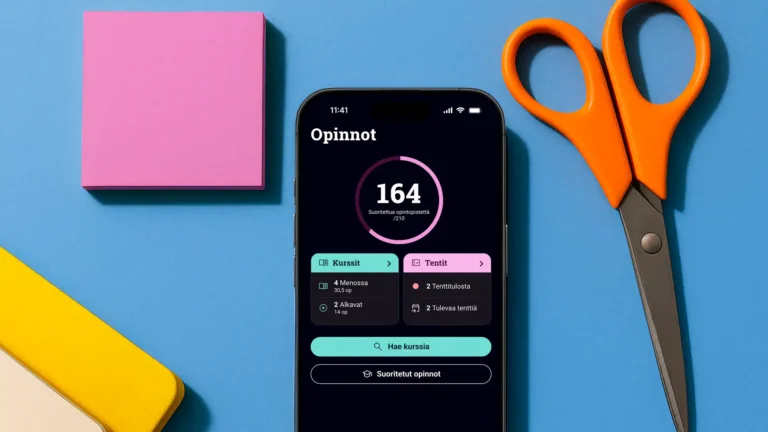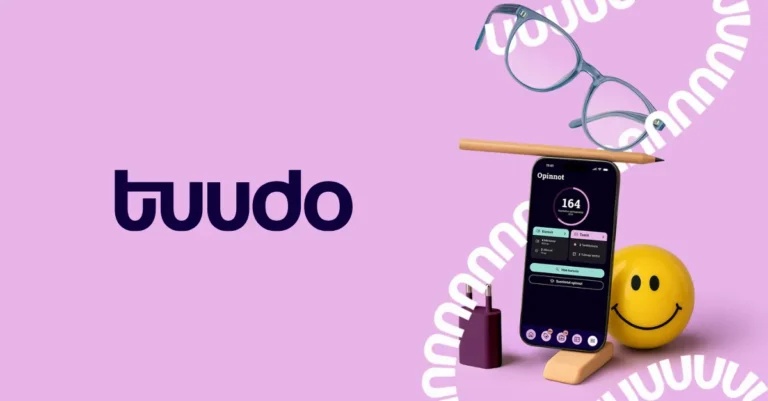It’s easy to fall into eternal clichés when trying to write concise yet appealing job advertisements. In this article, we have compiled 7 overused phrases that have been seen in job advertisements more than enough over the years. At the same time, we provide tips on how to express the same points more effectively.
Job search engines are full of various job advertisements that largely repeat the same formula: job description, expectations from the employee, job benefits, and application instructions. Job advertisements often also include certain terms and expressions that soon become clichés. Just like in job applications, one can easily spot the use of copy-paste techniques, and overly formal and meaningless ads quickly get lost in the crowd. If job seekers are expected to be concrete and show personality in their job applications, it is only reasonable that the job advertisement are not filled with vague jargon.
Job seekers are looking for individual and attractive features in job advertisements that set the job apart from others. Therefore, it is important to use more engaging and targeted expressions to make the advertisement stand out and capture the reader’s interest.
1. We offer a competitive salary and benefits
Let’s start with an old classic that has fortunately begun to disappear from employers’ vocabulary. “Competitive” mainly means to potential employees that the employer is probably not paying any more than their competitors. Most likely, the employer itself doesn’t even know whether the salary is competitive or not.
So, don’t attract applicants with vague clichés; instead, openly state the salary level or range for the position. The new EU pay transparency directive also guides employers in this direction. Other possible benefits should be listed openly in the job advertisement.
2. Offering a unique window into the industry
Windows are ofter sought in a new apartment, not so much in work life. Especially large market leaders have used this phrase to describe the diverse learning opportunities they offer in their industry. At the workplace, the employee gets to see a real cross-section of how a specific industry operates as a whole.
However, “window into the industry” has become a very worn-out expression, and it doesn’t actually describe the desired aspect very well. Especially interns are very rarely actually observing the whole picture; instead, they are likely engaged in their daily tasks.
Instead of this phrase choose an alternative expression that reflects the value of the internship, learning opportunities, and the unique perspective it offers in the industry. Describe what the work entails, how the employee or intern genuinely benefits from this work experience, and why it is an important milestone on a potential employee’s career path.
3. Join our top-notch team!
“Top-notch team” is such an overused term that it has, to some extent, lost its meaning. As a result, it may provoke a reaction of suspicion – what’s wrong with this team?
Instead of describing the work community with glorifying adjectives, consider what makes the work team genuinely good and functional. Show the organization’s personality and culture in the job advertisement. Give applicants an idea of what the workplace is like and what kind of people work there.
Employee introductions and stories are a good way to present the organization to potential employees and, at the same time, make employees’ voices better heard. The message is much more credible when it comes from a team member rather than the company itself.
4. We are looking for a team player
“Are you ready to bend over backward for work and sacrifice your free time to achieve goals? Great, you are exactly the team player we are looking for!” “Team player” is a somewhat ambiguous concept and is often used in situations where employees are expected to make unnecessarily large concessions for the team’s sake – take one for the team. “Team player” is also quite outdated and flat, so it might be better to find a new way to say the same thing.
In the job advertisement, it is better to emphasize that a lot of work is done in teams and, therefore, good cooperation skills and a team-oriented mindset are needed in the work. Communication and interaction skills are essential in any work, and their importance is likely to only increase in the future.
5. Flexible and dynamic work environment
“Flexible and dynamic” – two nice-sounding adjectives that are easy to include in the job advertisement without much consideration. For example, “flexible” means different things to different people. An employer can claim to be “flexible” if the work can start “flexibly” between 8:00-8:30, while a job seeker may interpret flexible as the ability to work “flexibly” from anywhere according to their own schedule. What the term “dynamic work environment” means, however, remains a mystery to many job seekers. Therefore, wasting space on this term may seem pointless. “Dynamic” is also often a euphemism for being extremely busy.
If you want to emphasize the dynamism of the work environment, it is better to use expressions such as adaptable, active, vibrant, or inspiring. Instead of emphasizing the rush and changes in the organization, focus on continuous development and encouraging colleagues in the work community.
You can demonstrate the flexibility of the work environment in the job advertisement by describing what makes the workplace flexible. For example, mentioning flexible working hours or remote work opportunities is good. Additionally, you can highlight that you listen to and understand the needs and desires of employees, which is important, especially for students working alongside their studies.
6. Opportunity for career development
“Opportunity for career development” is a classic promise that most employers give to job seekers. As a result, it may lose some of its original effectiveness and distinctiveness. The opportunity for career development is a given for most job seekers, so mentioning it separately doesn’t particularly motivate them to send an application.
Emphasize opportunities for professional development and advancement within the organization. Clearly state what career paths are available and what support programs exist. You can give examples of career development opportunities through employee stories.
7. Smile does not fade even in the midst of urgency
Especially in customer service positions, this has been a very popular expression, although its use has been rightly reduced. If you have to specifically mention that smiles must not fade in work, the job might not be very uplifting. Needless to say, this doesn’t particularly attract applicants.
In the job advertisement, it is better to emphasize a positive attitude, a relaxed yet professional approach to work, and enthusiasm for serving customers in various situations.
Do you need help reaching potential employees? Through Tuudo, you can reach university students all over Finland. Contact us, and we will help you make an impression!
We are organizing national recruitment fair again on Tuudo app from 18th to 21st September 2023. Read more and sign up!













